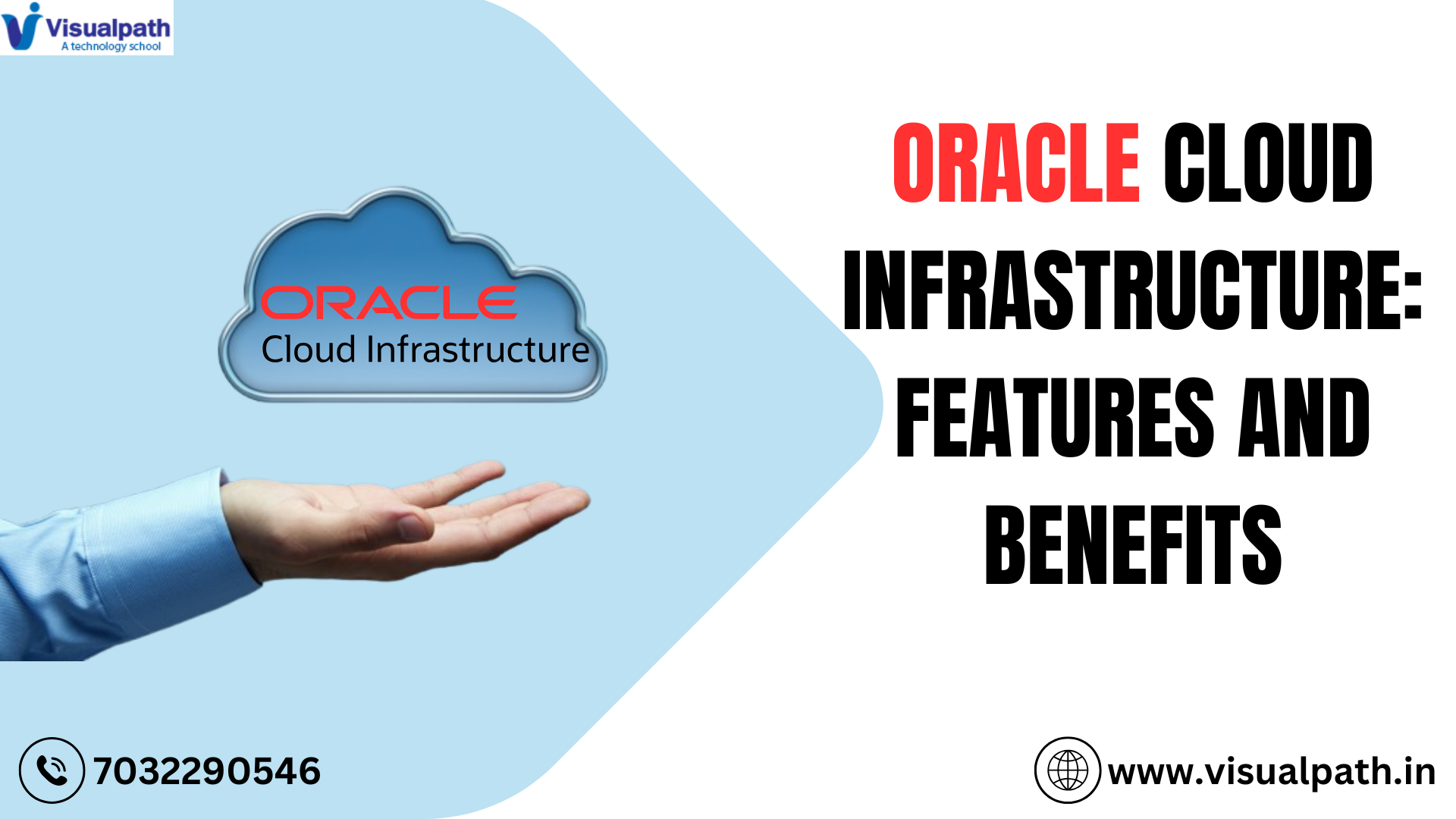Oracle Cloud Infrastructure (OCI) is a next-generation cloud computing platform designed to support enterprise workloads with high performance, security, and scalability. As businesses increasingly migrate to the cloud, OCI stands out as a robust alternative to other leading cloud providers such as AWS, Azure, and Google Cloud. With its comprehensive suite of services, offers a reliable, high-performing, and cost-effective cloud environment for organizations of all sizes.
Key Features of Oracle Cloud Infrastructure
1. High-Performance Computing
OCI provides high-performance virtual machines (VMs) and bare metal instances that deliver exceptional processing power for applications such as big data analytics, AI/ML workloads, and enterprise databases. The infrastructure is built on a high-speed, low-latency network, ensuring minimal downtime and optimal performance.
2. Autonomous Database
One of OCI’s standout offerings is its Autonomous Database, which automates key management tasks such as patching, tuning, and security. This self-driving database reduces administrative overhead and enhances efficiency while ensuring high availability and security.
3. Scalable and Flexible Storage Solutions
OCI provides a variety of storage options, including Block Storage, Object Storage, File Storage, and Archive Storage. These options allow businesses to choose the best storage solutions based on their specific needs, ensuring seamless scalability and performance optimization.
4. Secure and Isolated Network
OCI offers a highly secure and Virtual Cloud Network (VCN) that isolates and protects workloads from cyber threats. Integrated security features such as firewalls, encryption, andprivate access enhance data protection, ensuring compliance with industry standards.
5. Comprehensive Security and Compliance
Oracle Cloud is built with security-first principles, offering multiple layers of protection, including identity and access management (IAM), data encryption, threat detection, and compliance certifications such as GDPR, HIPAA, and ISO 27001. These security measures ensure businesses can operate safely in the cloud.
6. AI and Machine Learning Capabilities
OCI integrates Artificial Intelligence (AI) and Machine Learning (ML) services that allow organizations to build, train, and deploy intelligent applications. These services empower businesses with predictive analytics, natural language processing, and automated decision-making capabilities.
7. Cost-Effective Pricing Model
Oracle provides a competitive pricing structure compared to other cloud providers, with lower data egress costs and a flexible pay-as-you-go model. The Oracle Cloud Free Tier also allows new users to explore services with free credits and resources.
8. Hybrid and Multi-Cloud Support
OCI supports hybrid and multi-cloud deployments, allowing enterprises to seamlessly integrate on-premises infrastructure with the cloud. The Oracle Interconnect for Azure enables interoperability between OCI and Microsoft Azure, offering businesses more flexibility in cloud adoption.
Benefits of Oracle Cloud Infrastructure
1. Enhanced Performance and Reliability
OCI is designed to handle mission-critical workloads, ensuring high availability and minimal latency. Its dedicated cloud regions and fault-tolerant architecture make it an excellent choice for enterprises that demand uninterrupted operations.
2. Increased Security and Compliance
With its built-in security features, OCI ensures that customer data remains protected against cyber threats. Businesses in regulated industries such as finance and healthcare can confidently deploy applications while meeting compliance standards.
3. Cost Savings and Better ROI
OCI’s lower operational costs, predictable pricing, and lower egress fees help organizations optimize their cloud spending. The Free Tier and flexible pricing models enable businesses to maximize their return on investment OCI Online Certification Course.
4. Simplified Cloud Management
With its automated database management, AI-powered analytics, and integrated DevOps tools, OCI reduces the complexity of cloud management. This allows IT teams to focus on innovation rather than routine maintenance.
5. Seamless Integration with Existing Infrastructure
OCI’s support for hybrid cloud and multi-cloud strategies ensures that businesses can integrate their existing systems without significant disruptions. This flexibility enables enterprises to leverage OCI while maintaining their legacy infrastructure.
Conclusion
Oracle Cloud is a powerful cloud platform that delivers high performance, security, and cost efficiency. With its comprehensive feature set,AI-driven automation, and flexible deployment options, OCI stands as a strong competitor in the cloud computing market. Whether a business is looking to migrate its workloads, enhance security, or optimize costs.




